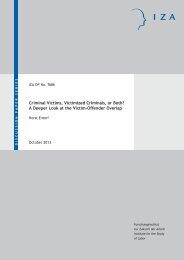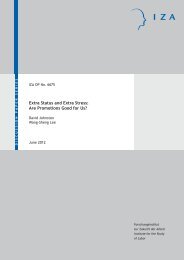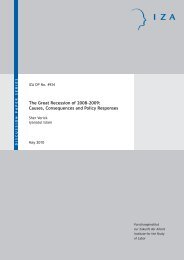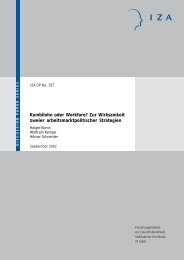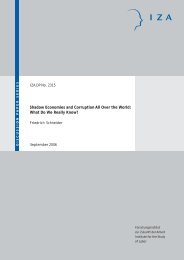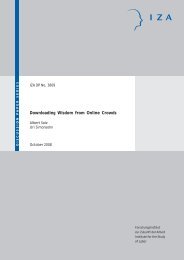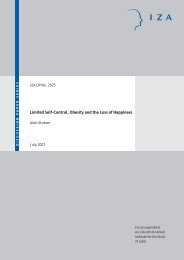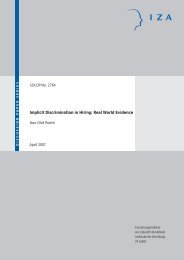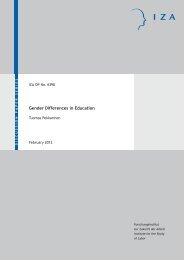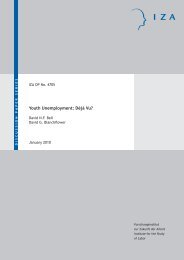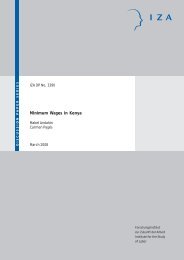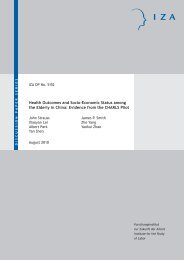Immigration: High Skilled vs. Low Skilled Labor? - Iza
Immigration: High Skilled vs. Low Skilled Labor? - Iza
Immigration: High Skilled vs. Low Skilled Labor? - Iza
You also want an ePaper? Increase the reach of your titles
YUMPU automatically turns print PDFs into web optimized ePapers that Google loves.
esidency program in the destination or obtain a medical license (Lesky, 2011 and McDonald,<br />
Warman, and Worswick, 2011). Thus points awarded for educational qualifications should be<br />
contingent on the applicant being able to use his or her skills in the destination.<br />
Under a targeted occupational rationing system employers petition on behalf of an<br />
applicant for a visa and must demonstrate that the applicant has occupational skills that are<br />
scarce in the destination. In principle this solves the problem of a job not being available, but<br />
once the visa is granted the applicant may elect to not work for that employer or even in that<br />
occupation. This system requires establishing a list of “favored” and “not-favored” occupations.<br />
A political tug-of-war between representatives of employer groups and of worker groups then<br />
becomes an important determinant of occupational categories that receive favorable visa<br />
treatment. Politics may dominate economics.<br />
Under the targeted occupation regime an applicant must identify a specific employer who<br />
is willing to expend the time and financial resources to secure a visa. Yet, after securing the<br />
visa, the worker may decline to work for that employer. Moreover, how is the employer to know<br />
which potential applicant to sponsor? Most likely it would be an applicant already in the<br />
destination under a student or temporary worker visa or in an illegal status. This encourages<br />
entry into the destination for the purpose of identifying an employer willing to serve as a<br />
sponsor.<br />
Neither mechanism in its pure form is ideal. A modified points system that considers<br />
whether the formal educational qualifications will be useful in the destination is less vulnerable<br />
to occupation-specific political maneuvering and to people coming to the US under non-<br />
immigrant visas or no visas to identify an employer willing to serve as a sponsor.<br />
17



